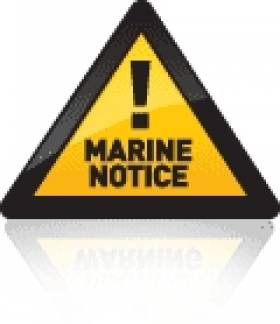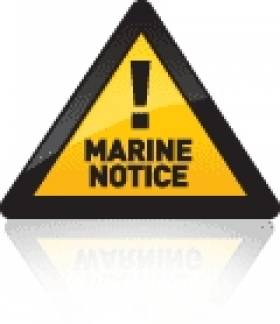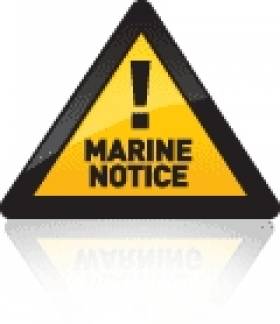Displaying items by tag: Killala Bay
Seized Ship: Revenue Offer Shingle to Sink in Killala Bay
#dublinport - The Connaught Telegraph writes the Revenue Commissioners have offered a ship to be sunk in Killala Bay on the Mayo/Sligo border as part of a plan to attract divers to the area.
The 60-metre MV Shingle won't cost a cent – Revenue have offered the confiscated boat for free.
Councillor Michael Loftus has been pushing for the project for some time now. Given its location, it would be a joint Sligo/Mayo venture.
He told a local tourism committee meeting that a motion is coming before Sligo County Council at their next meeting. He hopes also to have a motion before Mayo County Council when they next meet.
Arising from media coverage of a previous tourism meeting, the Revenue Commissioners (see related story) had gotten in touch with their offer of the free ship.
Councillor Loftus has met with Fáilte Ireland who have asked for updated figures on bed nights, etc., that would be generated by the project.
A feasibility study has already been carried out on the project.
Councillor Loftus cited other locations where sinkings have been a huge success in drawing visitors, for example in Malta, where 40 ships have been sunk around the coast.
Killala Bay is a 'most ideal location', he said.
To read much more click here into the background circumstances of the 669 tonnes vessel which the Revenue seized in 2014 that initially led to docking in Drogheda was followed by a transfer to Dublin Port where it has remained ever since.
Marine Notice: Two-Day Geophysical Survey In Killala Bay
#MarineNotice - EGS International Ltd is scheduled today (13 June) to begin a two-day geophysical cable route survey involving multibeam echo-sounder bathymetry, side-scan sonar, magnetometer and sub-bottom profiling off the Irish coast at Killala Bay.
The survey follows from a longer exercise carried out in January this year, and will be focused inshore along a route into Killala Bay detailed by co-ordinates listed in Marine Notice No 34 of 2014, a PDF of which is available to read or download HERE.
The vessel SMS Coastal Cat (call sign EIJD6) is scheduled to carry out the work on a 12-hour operation basis and will display appropriate shapes during daylight operations and lights during night time operations and periods of reduced visibility.
This vessel will be towing survey equipment up to 200m astern and will be restricted in its ability to manoeuvre while carrying out the survey.
As such, all vessels in the area, particularly those engaged in fishing, are requested to give the SMS Coastal Cat and its towed equipment a wide berth and keep a sharp lookout in the relevant areas.
#MarineNotice - The latest Marine Notice from the Department of Transport, Tourism and Sport (DTTAS) advises that a geophysical cable route survey will begin off the Irish coast at Killala Bay on Wednesday 21 May.
TE SubCom is scheduled to carry out the survey, which involving multibeam echo-sounder bathymetry, side-scan sonar, magnetometer and sub-bottom profiling at Killala Bay heading north to the 12nm limit.
The survey will last for approximately 1 week, weather permitting, and will be carried out by the vessel RV Ridley Thomas (Call sign V7JK2).
The vessel will be towing survey equipment up to 200m astern and will be restricted in its ability to manoeuvre whilst carrying out the survey. The RV Ridley Thomas and any assisting project vessels will be listening on VHF Channel 16 throughout the project.
All vessels, particularly those engaged in fishing, are requested to give the RV Ridley Thomas and its towed equipment a wide berth and keep a sharp lookout in the relevant areas.
Co-ordinates for the survey areas and further details are included in Marine Notice No 30 of 2014, a PDF of which is available to read or download HERE.
Marine Notice: Geophysical Survey of Killala Bay
#MarineNotice - EGS International Ltd is scheduled to carry out a geophysical cable route survey involving multibeam echo-sounder bathymetry, side-scan sonar, magnetometer and sub-bottom profiling off the Irish coast at Killala Bay heading north to the 12nm limit.
The survey will start on Monday 13 January 2014 and will last for approximately one month, weather permitting.
The route of the survey from the 12-nautical-mile territorial limit into Killala Bay is detailed in Marine Notice No 11 of 2014, a PDF of which is available to read and download HERE.
The vessels SMS Coastal Cat (call sign EIJD6) and EGS Pioneer (call sign 2EGS9) are scheduled to carry out the work on a 12-hour and 24-hour operation basis respectively, and will display appropriate shapes during daylight operations and lights during night time operations and periods of reduced visibility.
The vessels will be towing survey equipment up to 200m astern and will be restricted in their ability to manoeuvre while carrying out the survey, and all vessels are requested to give this operation a wide berth. All project vessels will be listening on VHF Channel 16 throughout the project.
All vessels, particularly those engaged in fishing, are requested to give the SMS Coastal Cat and EGS Pioneer, and their towed equipment, a wide berth and keep a sharp lookout in the relevant areas.































































